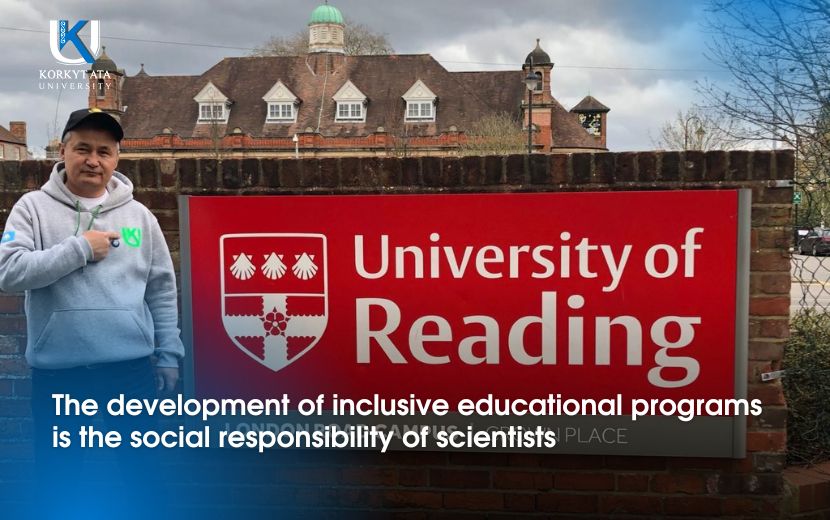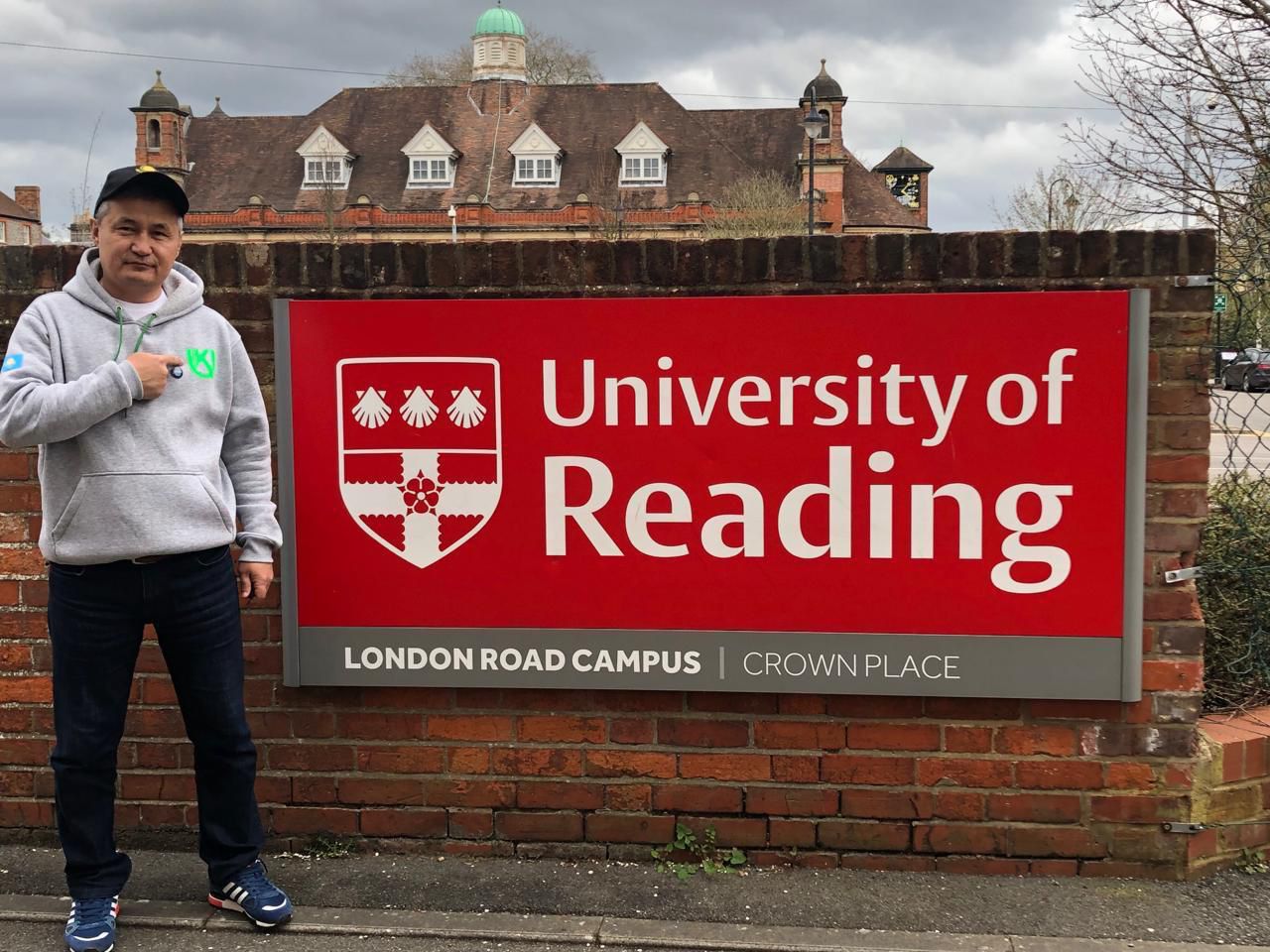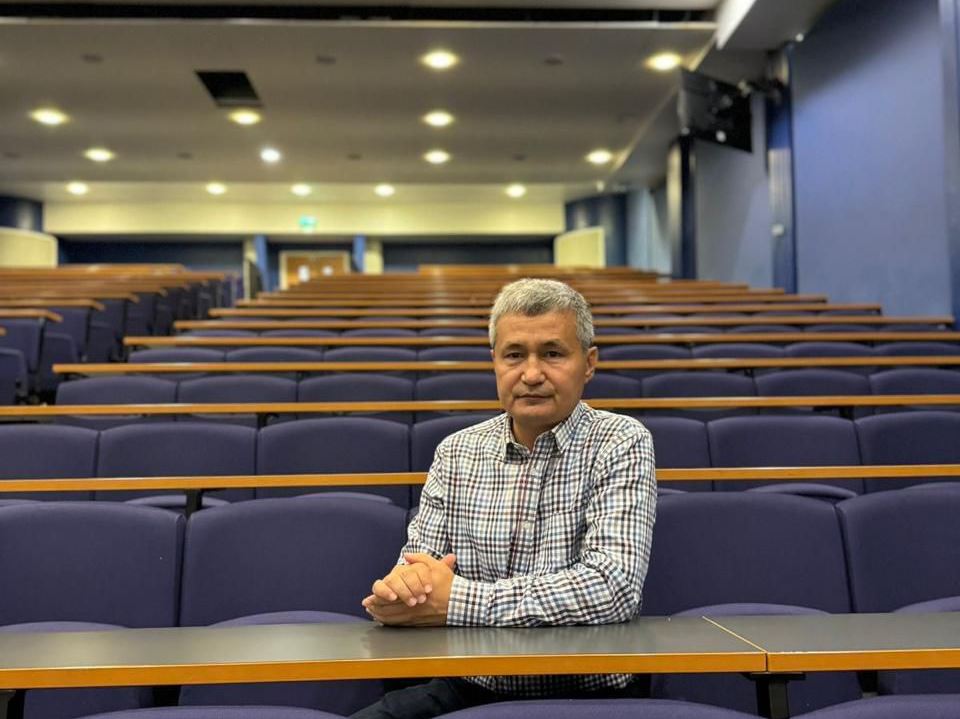- University
- Governance
- CHAIRMAN OF THE BOARD-RECTOR
- Academic council
- Assistant to the Chairman of the Board-Rector
- Advisor to the Rector on public relations
- Advisor to the Rector on administrative and legal issues
- Advisor to the Rector for youth affairs
- Human resource management
- Documentation Support and Archive Department
- Department of Economics and Finance
- Department of Economic Work
- Information Security Officer
- MEMBER OF THE BOARD - VICE-RECTOR FOR ACADEMIC AFFAIRS
- MEMBER OF THE BOARD-VICE-RECTOR FOR RESEARCH AND INTERNATIONAL RELATIONS
- Department of science
- Department of research coordination
- Commercialization Department
- Scientific сenter «Archeology and еthnography»
- Scientific center «Korkyt studies»
- Scientific centre «Mustafa Shokai»
- Laboratory of engineering profile «physicochemical methods of analysis»
- Scientific and educational center for chemical and biological research named after T.D.Kuanyshbaev
- Botanical garden and greenhouse facility
- Сhief editor
- Department of international relations
- Scientific and technical library
- Department of science
- MEMBER OF THE BOARD - VICE-RECTOR FOR SOCIAL AND EDUCATIONAL WORK
- Department of Social and Educational Work
- Department of Recruitment and Career
- Employers' Council
- Master's Degree itinerary for the 2024-2025 academic year
- Work plan to increase the number of international students for the 2024-2025 academic year
- The annual work plan of the Institute of Artificial Intelligence for career guidance for the 2024-2025 academic year
- CV template
- «Upgrade» platform
- Media center
- Psychological Support Center
- Medical Center
- The Center «Assembly of People of Kazakhstan»
- Palace of students
- Museum
- Sports complex «Seykhun»
- Student Ombudsman
- Council of veterans
- «Кorkyt ata endowment» сorporate fund
- Alumni Association
- BOARD MEMBER - VICE-RECTOR FOR STRATEGIC DEVELOPMENT AND IT
- CHAIRMAN OF THE BOARD-RECTOR
- Mission of the University
- Development Strategy
- Corporate governance
- Board of Directors
- Corporate Secretary
- Corporate events
- Corporate documents
- Meetings of the Board of Directors
- Committees of the Board of Directors
- Report on the activities of the Board of Directors
- Board
- Board meetings
- Internal audit service
- Anti-Corruption Compliance Service
- Decisions of the sole shareholder
- Accreditation
- Positions in the ratings
- Register of documents
- Graduates
- Structure
- Blog Rector
- Material and technical base
- Personnel reserve
- Quality Assurance policy
- Summary risk map
- Governance
- Education
- Science
- Students
- International relations
- Media
- SDG
- Sustainable development policy
- Measures for the implementation of policies in the field of sustainable development goals
- Mechanism for implementing the sustainable development policy
- Specialist in sustainable development goals
- Scientific projects
- International Center for the Study of Ecosystems of the Aral Sea Region
- Educational programs on sustainability
- Commissioners for Sustainable Development
- Center for Inclusive Education

The development of inclusive educational programs is the social responsibility of scientists
We continue to introduce our readers to the scientists of Korkyt Ata Kyzylorda University, participants in international scientific internships. Today we are talking with Yesenzhol Asylbekovich Nazarov, a student of the Bolashak program who studies at the University of Reading in Great Britain.
- Yesenzhol Asylbekovich, we know that one of the key objectives of your research is to create an educational program for students with special needs. Why are you interested in this particular topic?
- The development and implementation of inclusive methods is a task that scientists in many countries are setting for themselves today. Kazakhstan also strives to eliminate all social barriers of society in the educational process and imposes social and ethical responsibility on representatives of science to support students with special needs. Studying at Reading allowed me not only to apply my knowledge, but also to gain a deeper understanding of the importance of inclusive education. I have participated in various events, meetings, and scientific conferences where my colleagues and I discussed current issues and found solutions. This experience has greatly expanded my horizons and helped me develop teamwork and communication skills.
Here I had the opportunity to participate in a real project related to the development of an inclusive educational program, the experience of participating in which gave me a unique opportunity to apply theoretical knowledge in practice, as well as to gain a deeper understanding of important aspects of inclusive education. Working on the project made it possible to interact with various specialists: teachers, psychologists and administrators. I saw how important it is to take into account the individual needs of each student and design programs that best contribute to their successful learning and development. This experience has taught me not only the importance of strategic planning, but also the need for flexibility and adaptability in the management of educational projects.
Each student is unique, and their needs can vary significantly. For example, in the context of developing a program for students with special needs, it is important to take into account factors such as learning style, learning difficulties, and preferences in teaching methods. Understanding these individual characteristics allows for more inclusive and tailored training programs.
.jpeg)
.jpeg)
- The process of developing educational programs is an important stage in the higher education system. Have you noticed many differences in the algorithm of creating programs when interacting with your international colleagues?
- The value of an internship lies in the integration of theory and practice, deep understanding of work in the field of education and the development of skills that will be needed throughout the whole career. This experience has become not only a professional, but also a personal achievement, of which I am sincerely proud. The process of developing educational programs is a complex and multifaceted work that includes many stages and aspects. During my internship at the University of Reading, I was able to gain a deeper understanding of the key elements of this process, as well as their importance for the success of educational initiatives.
I would not say that the Kazakh algorithm differs greatly from international program development standards. The first step in developing an educational program is to analyze the needs of the target audience. It is important to understand who the students will be, what their characteristics and needs are, and how the program can meet them. I participated in a study aimed at collecting data on the needs of students with special needs, which gave me an idea of the importance of this stage. Based on the needs analysis, we determined the goals and objectives of the program. It became clear that the goals should be clear and measurable in order to assess the success of the program in the future. It is also important to consider both short-term and long-term goals so that the program is relevant and effective. The development of the curriculum and course content is the next stage. It is important to create a balanced program that combines theoretical knowledge and practical skills. I witnessed how teachers developed modular programs, including various teaching methods, to ensure the effectiveness of the process.
In the process of developing programs, it is important to involve various concerned parties. These can be teachers, administrators, students, and even parents. Discussion and coordination with these groups help to create a program that completely and fully meets real needs and expectations. In general, I am very pleased with the result of the scientific interaction, during which my colleagues and I learned from each other.


- The University of Reading is a world–renowned educational institution with a long history. How will it be remembered for you personally?
- You are right, this is an outstanding educational institution, known worldwide for the quality of its research and high level of teaching. The University was founded in 1892 on the basis of the College of Art and Science. Previously, the educational institution was part of the University of Oxford, but in 1926 the university was awarded a Royal Charter confirming the status of an autonomous university.
The city is located near London, many people confuse the name of the city with the word "reading" with "reeding", but this is not the case, the name comes from the Anglo-Saxon tribe "Readingas". It is an old town with quiet, cozy parks, with short warm summers and long windy winters. Sometimes windy days resemble our Kyzylorda weather. The University of Reading is also famous for achieving great results in expanding academic boundaries and making social changes. In the 2018 Global University Ranking, the University of Reading was among the top 200 universities in the world. This is a very great achievement.
As I said, we worked on a specific project at the university, created a scientific project group, which included 6 professors from various higher educational institutions of the Republic of Kazakhstan. At the first stage, the research team worked on the topic: "The ideology of gender equality in the framework of management in education." Our goal was to create a basic gender architecture, identify priority outcomes, gradually implement exemplary models, and integrate educational programs. The "gender gap," as we understand it, is more likely in sectors that require revolutionary technical skills. There is a whole range of problems, from socio-economic, cultural and psychological to socio-political, that cause concern not only in our country, but throughout the world. We are also talking about higher education and science. Together with our Kazakhstani colleagues and scientists from other countries, we tried to study and help eliminate the factors of inequality in education.
Initially, it was necessary to identify problems in education and solve them through scientific research. To do this, our team explored ways to improve teaching, learning, and professional practice, and developed and implemented strategies and systems to support educational leadership. In addition, decisions such as educational policy and curriculum or the allocation of funding were discussed.
Then the team worked as part of a study on the topic: "Artificial Intelligence in STEM education." At this stage, we were fulfilling the task of briefly presenting the work in the form of a poster presentation. Under the guidance of Professor D. Yota, we have managed to achieve solid results in the study of methodology in the field of artificial intelligence application in the development of undergraduate students' skills.
The main educational process was organized in the format of lectures, with most classes taking the form of workshops, seminars, lectures and trainings. Some of the classes were practical in nature, such as programming, teamwork, team leadership, etc. Here the outdoor activities are practiced. There is friendliness, openness and a desire to interact everywhere.
This valuable experience is important for me not only as a scientist, but also as an ordinary Kazakhstani who has become part of an international educational and cultural exchange.
- How do you plan to use your international experience upon returning to Kazakhstan?
- The government and the leadership of Korkyt Ata Kyzylorda University have provided us with a unique opportunity to complete a scientific internship under the "500 Scientists" program and conduct research at the best universities and scientific laboratories in the world. Of course, the internship is aimed at improving the skills of scientific, scientific and technical personnel. As a result of my internship, I have improved my professional skills in the field of management and development of educational programs, taking into account the goals of sustainable development, expanding the understanding of leadership, and awareness of climate education. All these latest technologies will be used in my daily teaching and research activities in Kazakhstan.
Every scientist strives to achieve success, recognition in the global scientific community and expand their own horizons. An international internship is also a great opportunity to develop the scientific career of a scientist and the scientific community of various countries as a whole. These are also opportunities to improve language skills, which further contribute to the expansion of professional contacts and competencies. In general, an effective international internship enhances the prestige and international recognition of scientists and universities, as well as the countries in which we live and work.
- Thank you so much for the interesting conversation.
Media Center of Korkyt ata Kyzylorda University
Contact phone: 8(7242) 26-21-34
e-mail: media_korkyt@mail.ru
Services available
PLATONUS
platonus.kz
E-univer
https://e-univer.korkyt.kz/
Call center
+7-7242-558877
МООK
МООK (Massive Open Online Lesson)
Megaproject Electronic Library
e-univer.korkyt.edu.kz
Erasmus
erasmus
Schedule of lessons
more...
Science Library
more...

